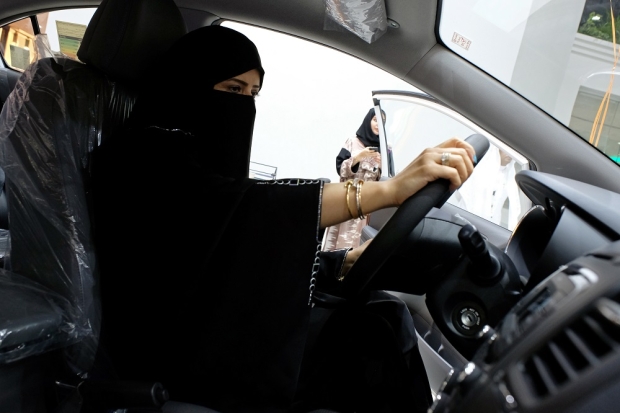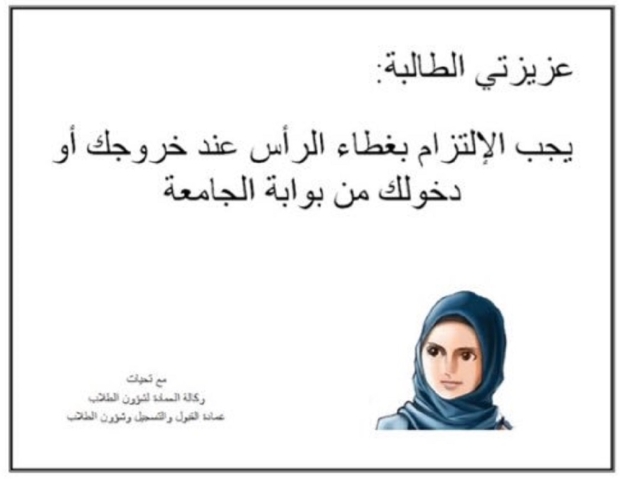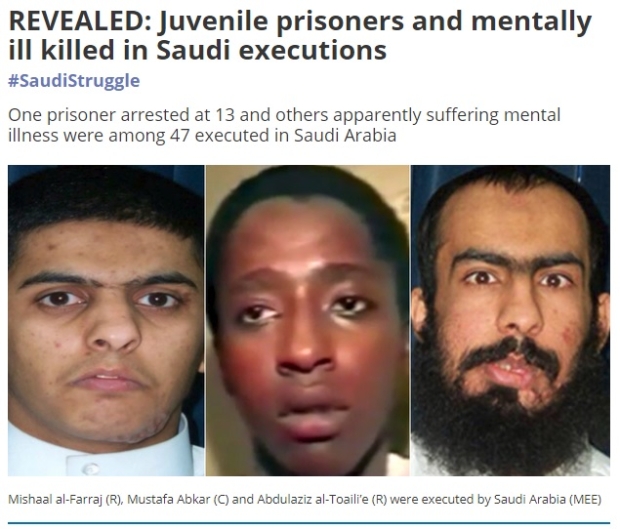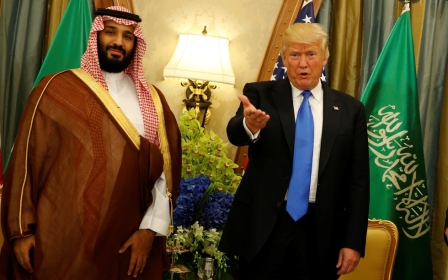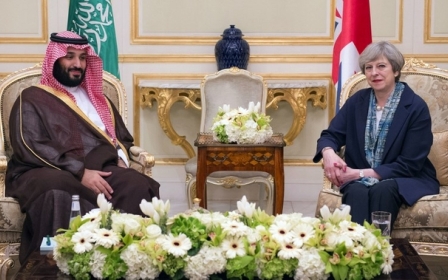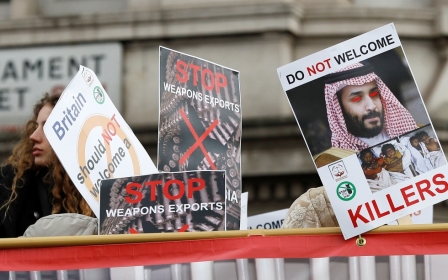Saudi saviour or king of spin? Fact-checking Mohammed bin Salman
Crown Prince Mohammed bin Salman has been hailed as the great Saudi reformer by American media during his trip to the United States.
At the White House, Donald Trump told him their countries' relationship had never been stronger - before boasting he was going to sell him lots of weapons.
In an interview with CBS's 60 Minutes, bin Salman championed the great strides his country was taking on subjects including women's rights, transparency of governance, human rights and promoting a moderate form of Islam.
But how much of it is true, how much is "up to a point", and how much is pure spin? Middle East Eye fact checks the prince.
Women's rights
Bin Salman told 60 Minutes that his country was entering a new age of gender equality. Women, he said "have been given new rights, making it easier for them to start a business, join the military, and attend concerts and sporting events.
"In June, they will be able to get behind the wheel and drive." Asked if women were equal to men, he replied: "Absolutely. We are all human beings and there is no difference."
Is all of this true? Up to a point.
In June, they will be able to get behind the wheel and drive
- Mohammed bin Salman
Indeed, women from June will be allowed to drive. It is a policy change that allows Saudi Arabia to catch up with every other country on the planet. It was also passed by decree only days after a Saudi cleric claimed women should not drive because a woman's brain was a quarter the size of a man's. To the state's credit, the cleric was banned.
It also is true that commercial cinemas will be opened to all genders. As in many other Gulf states, however, the content on the screen will be heavily censored to keep them morally suitable for Saudi Arabia.
In January women were for the first time in modern Saudi Arabia allowed to watch a football match. This is all positive stuff.
However, and despite government instructions to the contrary, Saudi women continue to be constrained by "male guardianship" rules. Human Rights Watch says traditional and legislative restrictions continue to impede women's lives, effectively turning them into adult minors who can do little without male approval.
"Adult women from Saudi Arabia must obtain permission from a male guardian to travel abroad, marry, or be released from prison," HRW says, "and may be required to provide guardian consent to work or get health care."
Abayas and women's clothing
In the interview with 60 Minutes, bin Salman said that Saudi women were not forced by law to wear a black abaya or black head cover.
"The laws are very clear and stipulated in the laws of sharia: that women wear decent, respectful clothing, like men.
"This, however, does not particularly specify a black abaya or a black head cover. The decision is entirely left for women to decide what type of decent and respectful attire she chooses to wear."
Is it true? Apparently not, if you're a woman studying at the University of Dar al-Uloum in Riyadh.
On the same day of bin Salman's comments, it told female students: "Dear student, you should keep your head cover when you are inside or outside the university."
For those who might get a tad upset, the university's anger management sessions might prove useful - it uses a cartoon of a woman, sans abaya, in its advert.
Transparent justice and human rights
Bin Salman told 60 Minutes that Saudi Arabia was working hard at transparency and openness in its judicial system, and toward those the state arrests and jails.
When asked about dissidents arrested during his time in power, and what has happened to them, he said: "We will try to publicise as much as we can and as fast as we can, information about these individuals in order to make the world aware of what the government of Saudi Arabia is doing to combat radicalism."
Is it true? No.
We will try to publicise as much as we can and as fast as we can
- Mohammed bin Salman
For example, no official list exists of the people rounded up in the infamous "corruption" probe in November. Five months later the public knows nothing of the charges they faced, and scant detail is in the public domain on the deals agreed to secure release.
Bin Salman told 60 Minutes that the probe was conducted "in accordance with existing and published laws" - we just don't really know which.
The only figure released to the public was the total number of people held in the probe - 381, including billionaires, businessmen and royal family members.
Bin Salman was reported last week to have his own mother under house arrest in an attempt to prevent her from influencing his father against him.
On transparency in criminal justice, Saudi Arabia continues to execute hundreds of people a year, including minors, often after sham and often secretive trials on vague charges of "terrorism".
Middle East Eye reported in 2016 how Saudi Arabia had executed mentally ill prisoners and juveniles in a mass execution in which the leader of Shia Muslims in the country, Nimr al-Nimr, was put to death for "terrorism".
The execution rate, meanwhile, has actually doubled in Saudi Arabia since MBS came to power.
"Saudi Arabia believes in many of the principles of human rights," bin Salman told 60 Minutes. "In fact, we believe in the notion of human rights, but ultimately Saudi standards are not the same as American standards. We are working to mend these shortcomings."
More work is evidently needed.
Moderate Islam
Bin Salman told 60 Minutes that the Iranian Shia revolution of 1979, and the attempted capture of Mecca's Grand Mosque by Sunni radicals in the same year, were the catalyst for radicalisation among Sunnis in Saudi Arabia.
When asked if there was truth in the perception that the kind of Islam practised in his country, ie Wahhabism, was "strict" and "intolerant", he replied: "After 1979, that's true. We were victims, especially my generation that suffered from this a great deal."
Pre-1979 Saudis enjoyed "a very normal life like the rest of the Gulf countries" and its people were "developing like any other country in the world".
Is that true? Again, up to point.
Saudi Arabia was always a conservative Islamic society - it was the birthplace of Wahhabism - and 1970s Riyadh would never have been compared, say, to Kabul or Cairo of the same time.
Jeddah, on the Red Sea, has always been on the more cosmopolitan end of Saudi life - but by 1975, according biega.com, its main hotel had banned mixed-gender swimming pools and its cinema had closed.
Bin Salman told 60 Minutes that he was dedicated to driving extremists and radicals out of Saudi Arabia. He cited the Muslim Brotherhood, a pan-Arab, Sunni movement, as a "terrorist" group, which has been banned by his country.
No country in the world would accept that its educational system be invaded by any radical group
- Mohammed bin Salman
"Saudi schools have been invaded by many elements from the Muslim Brotherhood, surely to a great extent. Even now, there are some elements left. It will be a short while until they are all eradicated completely."
"No country in the world would accept that its educational system be invaded by any radical group."
However the Muslim Brotherhood maintains it is a peaceful movement and has taken part in electoral politics in several countries in the region.
On to Pakistan, where Saudi organisations and government funds have over four decades created a network of Wahabbist schools that number in the tens of thousands.
A recent report by the European Parliament, citing Pakistan among a number of countries, found that "in recent years, the impact of funding educational, social and religious institutions by Salafi/Wahhabi networks in the Muslim world has become remarkable... financial aid granted by Salafi/Wahhabi, whether by institutional or private donors, systematically pursue a goal of political influence."
Middle East Eye propose une couverture et une analyse indépendantes et incomparables du Moyen-Orient, de l’Afrique du Nord et d’autres régions du monde. Pour en savoir plus sur la reprise de ce contenu et les frais qui s’appliquent, veuillez remplir ce formulaire [en anglais]. Pour en savoir plus sur MEE, cliquez ici [en anglais].


